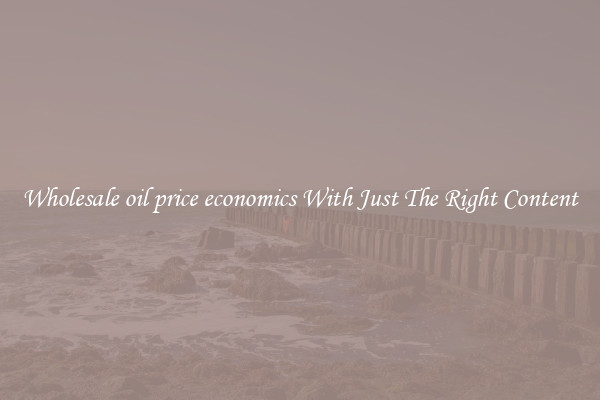Wholesale oil price economics With Just The Right Content
Wholesale oil prices play a crucial role in global economics as they directly impact the cost of oil-based products for consumers. The price of oil is determined by a complex interplay of supply and demand factors, as well as geopolitical events and market speculation.

One of the key factors influencing wholesale oil prices is the level of global oil production. When production levels are high, there is an abundance of oil on the market, leading to lower prices. Conversely, when production levels are low, there is a scarcity of oil, causing prices to rise. OPEC, the Organization of the Petroleum Exporting Countries, is a major player in determining global oil production levels through its production quotas.
Another factor that influences wholesale oil prices is geopolitical events. Political instability in oil-producing countries can disrupt supply chains and drive prices up. For example, tensions in the Middle East or conflicts in oil-producing regions can cause oil prices to spike.
Market speculation also plays a significant role in determining wholesale oil prices. Traders and investors closely monitor global events and economic indicators to make informed decisions about the future direction of oil prices. Speculative buying and selling of oil futures can cause price fluctuations, sometimes leading to sharp spikes or drops in prices.
In addition to these factors, the strength of the global economy also plays a role in determining wholesale oil prices. When the economy is booming, there is a higher demand for oil, which can drive prices up. Conversely, during economic downturns, demand for oil may decrease, leading to lower prices.
Overall, wholesale oil price economics are complex and multifaceted, with a range of factors influencing the cost of oil on the global market. Understanding these factors can help businesses and consumers make informed decisions about their energy needs and strategies for managing oil price volatility.

View details

View details

View details

View details








